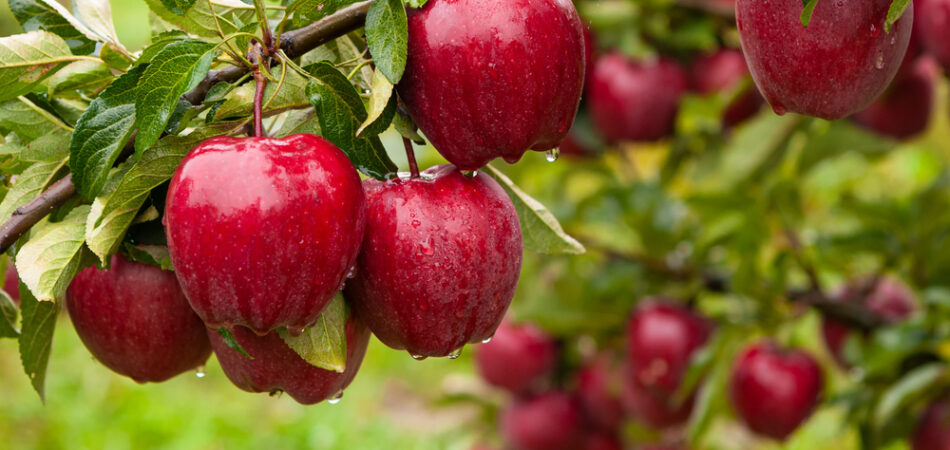
Orchards are more than just rows of trees; they are intricate ecosystems where the interplay between soil health and plant growth significantly impacts yield and fruit quality. While traditional agricultural practices focus on fertilizers and irrigation, recent research has uncovered another crucial player: the soil microbiome. This blog explores how understanding and nurturing the soil microbiome can maximize orchard yield, ensuring sustainable and fruitful harvests for years to come.
What is the Soil Microbiome?
The soil microbiome refers to the diverse community of microorganisms that inhabit the soil, including bacteria, fungi, archaea, and other microbes. These microorganisms play essential roles in nutrient cycling, disease suppression, and plant health. In orchards, their activities are particularly crucial as they directly influence the availability of nutrients and the overall health of fruit-bearing trees.
Interactions with Tree Roots
One of the key interactions in which soil microbes engage is with the roots of orchard trees. This symbiotic relationship, known as the rhizosphere, involves the exchange of nutrients and signals between plants and microbes. Beneficial microbes can enhance nutrient uptake by tree roots, thereby promoting growth and increasing resilience to stressors such as drought or disease.
Enhancing Orchard Yield Through Microbial Diversity
Nutrient Cycling and Availability
Healthy soil microbiomes are efficient at decomposing organic matter and recycling nutrients like nitrogen, phosphorus, and potassium. This decomposition process releases essential nutrients in forms that trees can readily absorb, thereby reducing the reliance on synthetic fertilizers. By promoting microbial diversity through practices like cover cropping and composting, orchard managers can ensure a continuous supply of nutrients to support robust tree growth and fruit production.
Disease Suppression
Certain soil microbes act as natural antagonists to plant pathogens. They can compete for resources or produce antimicrobial compounds that inhibit the growth of harmful fungi or bacteria. Managing orchard soils to enhance the populations of these beneficial microbes can help prevent diseases that could otherwise devastate fruit yields. This approach not only reduces reliance on chemical pesticides but also contributes to sustainable orchard management practices.
Practical Applications in Orchard Management
Soil Testing and Microbial Analysis
Before implementing microbial management strategies, orchard managers can conduct soil tests and microbial analyses to assess the current microbiome composition. These tests provide insights into nutrient levels, microbial diversity, and any imbalances that may exist. Armed with this information, managers can tailor their approaches to enhance soil health and optimize orchard productivity effectively.
Organic Matter Management
Maintaining adequate levels of organic matter in orchard soils is crucial for supporting a healthy microbial community. Practices such as mulching, composting, and incorporating cover crops can enrich soil organic matter, providing a substrate for microbial growth and activity. This approach not only improves soil structure and water retention but also fosters a favorable environment for beneficial microbes to thrive.
Crop Rotation and Diversity
Integrating crop rotation and diversification strategies can further enhance the resilience and health of orchard soils. Different tree species and cover crops host unique microbial communities, enriching soil biodiversity over time. Rotating crops helps break pest and disease cycles while promoting nutrient cycling by varying the types and timing of nutrient demands within the orchard ecosystem.
Conclusion
The soil microbiome plays a pivotal role in maximizing orchard yield by enhancing nutrient availability, suppressing diseases, and promoting overall soil health. By understanding these interactions and implementing sustainable management practices, orchard managers can harness the power of beneficial microbes to cultivate resilient trees and ensure bountiful harvests. Moving forward, continued research and innovation in microbial ecology will further refine our understanding and application of microbiome-based strategies in orchard management, paving the way for more sustainable and productive agricultural practices.
Need Soil Testing in Pasco, WA?
Founded in 1992, Custom Orchard Fumigation was created by farmers for farmers. We take great pride in providing soil fumigation services to farmers throughout the state. We can also help growers find other services to help in growing their crops. We also provide all paperwork for our services to ensure all regulations are met. Our founder, Chris Ford, has a background in Forest Management, and we are conscious of reducing the environmental impact on the soil and surrounding areas of your plot. Custom Orchard Fumigation invites you to visit our website or give us a call today!
